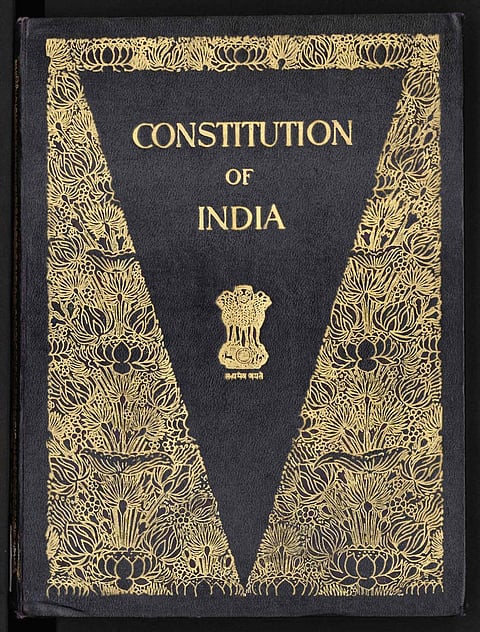
- Home
- NewsGram USA
- India
- न्यूजग्राम
- World
- Politics
- Opinion
- Entertainment
- On Ground
- Culture
- Lifestyle
- Economy
- Sports
- Sp. Coverage
- Misc.
- NewsGram Exclusive
- Jobs / Internships
- Interview

Jammu and Kashmir, August 12, 2017: Indian constitution's Article 35-A empowers the state legislature of Jammu and Kashmir to provide a definition of the state's 'permanent residents' and provide them with special privileges and rights. It was incorporated in the Constitution by the then President of India on 14 May 1954 under an order known as the Constitution (Application to Jammu and Kashmir) Order 1954.
Article 368 underlines that no Constitutional amendments can take place in the absence of a parliamentary procedure. Article 35-A was not presented before the Parliament. It exists as an appendix instead of the amendments' list in the Constitution. Article 35-A instead of providing special rights and privileges and/or protecting permanent residents of J&K, it has discriminated against some. Women have suffered the worst are the women amongst the others who are discriminated against.
According to Article 35-A, the J&K state legislature can define "permanent residents" and also change its definition.
Till 2002, the female residents of J&K were being issued Permanent Resident Certificates (PRCs) with the tag 'valid till marriage' by the Revenue Department. In a case labeled Jammu and Kashmir Versus Dr. Sushila Sawhney and others, as per the majority opinion, the full bench of Jammu and Kashmir High Court it was decided that a permanent resident's daughter getting married to a nonpermanent resident or an outsider will not let go of the prestige of Jammu and Kashmir's permanent residence.
In spite of the clear judgment by the High Court and its legal position, a committee was made by the Revenue Department of the state in 2016 to solve an already settled matter. The government at the center was not allowed to intervene, due to Article 35-A.
Marriage with an outsider: If a woman from Jammu-Kashmir marries someone who is an outsider, she will not be permitted to reside in the state in any circumstance. If a man belonging to another state gets married to a woman in J&K, he is not qualified to receive a PRC, including any of the benefits associated with it.
This conveys he is not eligible to be given a government job, his children are not eligible to enroll in institutes and professional colleges run by the state, and he cannot buy land.
This indicates that in the situation of a woman marrying an outsider, she will be obliged to leave her state and reside somewhere else. Before such women had to let go of the prestige of a permanent resident and even her spouse and offsprings didn't get PRC. However, this does not happen if the involved resident is male.
Valmiki Families: The number of Valmiki families sent to J&K from Punjab in 1957 for the work of safai karamcharis were 200. All these families were ready to be employed in J&K after it was promised to them that the clause of 'permanent resident' would be in their favor.
After five long decades, each family's strength has grown and the employee numbers have gone up. Their plight, however, is that they will be regarded as J&K's 'permanent residents' only if they work as safai karamcharis.
The offsprings of these families, who have been graduated, cannot give applications for government jobs. Even the literate youngsters belonging to their families can only work as safai karamcharis. The community that was allocated to safai karamcharis to reside in has not been standardized till now.
J&K's Gorkhas: They were appointed to all the positions of Maharaja Ranjeet Singh's army and after that Maharaja Gulab Singh's. Their families resided in Jammu and Kashmir since 200 years and before, and are around 1 lakh in number. They are not given PRC on unreasonable grounds. The reason is Article 35-A which allows the state government to discriminate among the state's permanent residents.
Now the question that arises is if Article 35-A was meant to safeguard the rights of Jammu and Kashmir's permanent residents then why do Valmikis, Gorkhas, and women face discrimination?
If Article 35-A allows J&K's government to be biased to the state's permanent residents, then why shouldn't it be repealed with immediate action? Such points need immediate attention to guard J&K's permanent residents from further bias.
-prepared by Harsimran Kaur of NewsGram. Twitter Hkaur1025
